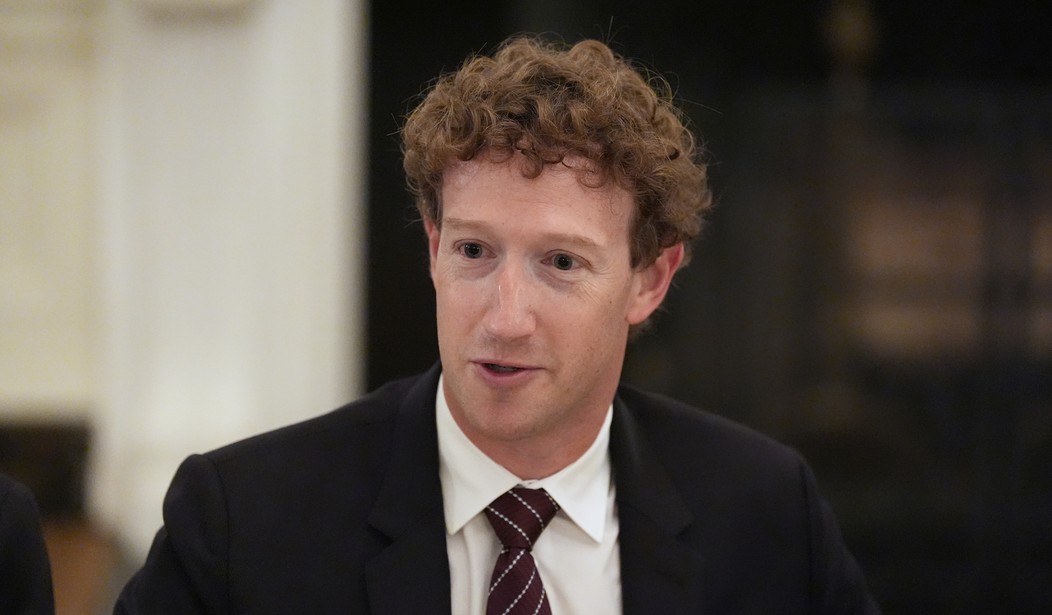This admission may come as a bit of a surprise to some, but as a political writer, I'm not all that fond of social media — and that's putting it mildly. Allow me to explain.
First, in my not-so-humble opinion, social media — Facebook, Instagram, X, et al. — is not dissimilar to road rage. Otherwise seemingly normal people launch into bitter fits of rage in a nanosecond, calling each other vile names — and worse — at the proverbial drop of a hat. Yet, I doubt that many of the same people would behave with such abhorrent rancor, face-to-face.
As the purveyor of a Facebook page with a substantial following, I see it daily — whether yours truly is the target, or followers doing battle with one another — the bitterness and rush to name-calling and nasty personal attacks come far easier for some than at any time I can remember over the years.
Why is that?
While the question is simple, the answer is not only complex; it also depends on who's answering it.
One major problem comes from users who either can't or refuse to differentiate between opinions and facts. Even worse are those who push so-called “facts” that aren’t remotely factual, only to have others mindlessly share pretend-facts — "fake news," if you will — without question or a modicum of their own research. The result is a chain reaction of usually ridiculous, often absurd, back-and-forth bitterness and sophomoric behavior.
This brings us to the salient question of the article: Does ongoing social media usage harm users?
According to a Sunday report by CNBC, a legal filing released on Friday claims Mark Zuckerberg’s Meta — the parent company of Facebook and Instagram — deliberately buried internal research that showed users who quit its platforms felt less depressed and anxious, then stopped the research entirely rather than risk public scrutiny.
According to the documents, Meta scientists working under “Project Mercury” found that getting off Facebook and Instagram led to clear improvements in users’ mental health, but Meta management chose to suppress those results and discouraged further study.
Yep, instead of warning the public or pursuing solutions, Meta allegedly downplayed legitimate findings and privately dismissed their own negative data. Internal communications reveal that some Meta staff even objected to what they saw as an effort to cover up the damaging evidence.
Who knew?
Meanwhile, Meta publicly denied the seriousness of the mental health risks and characterized critics as misinformed, according to the filing. In response to the filing, Meta spokesperson Andy Stone said in a statement:
We strongly disagree with these allegations, which rely on cherry-picked quotes and misinformed opinions in an attempt to present a deliberately misleading picture. The full record will show that for over a decade, we have listened to parents, researched issues that matter most, and made real changes to protect teens—like introducing Teen Accounts with built-in protections and providing parents with controls to manage their teens’ experiences.
Here's more, via CNBC:
The 2019 Meta research was based on a random sample of consumers who stopped their Facebook and Instagram usage for a month, the lawsuit said. The lawsuit alleged that Meta was disappointed that the initial tests of the study showed that people who stopped using Facebook “for a week, reported lower feelings of depression, anxiety, loneliness, and social comparison.”
Meta allegedly chose not to “sound the alarm,” but instead stopped the research, the lawsuit said.
“The company never publicly disclosed the results of its deactivation study,” according to the suit. “Instead, Meta lied to Congress about what it knew.”
The lawsuit cites an unnamed Meta employee who allegedly said, “If the results are bad and we don’t publish and they leak, is it going to look like tobacco companies doing research and knowing cigs were bad and then keeping that info to themselves?”
Stone further claimed:
The study was intentionally designed to overcome expectation effects in order to understand the real impact of deactivation. It included a staged approach, starting with a pilot to see if these efforts would work. Unfortunately, they did not. And that is the reason this study did not continue.
Raise your hand if you believe Stone's claims.
While I won't go as far as to suggest social media is a cesspool, I will say that the amount of dis- and misinformation runs rampant. While predisposed beliefs are largely to blame, laziness on the part of untold numbers of users — failing or refusing to verify "facts" and other information — is also a major part of the mess.
So, Why the Disinterest in Verifying Facts and Other Information?
As is the case with news outlets, many of us have reached a point where we only want to be told what we already believe. Call it "unverified verification," if you will, meaning a large segment of social media users feel vindicated if they see or hear their favorite "journalists," commentators, or influencers agreeing with them.
ALSO CHECK OUT: Social Media Is Killing Us and We Don't Even Notice It
The Most Powerful Drug in the Modern Era That's Controlling Nearly Everything You Do
Much of the angst and rancor comes from the back-and-forth between diametrically opposed users. And when the name-calling and personal attack begin, it's on — more and more so than in the so-called "good old days."
So what say you? Let us know where you come down on the current state of social media.













